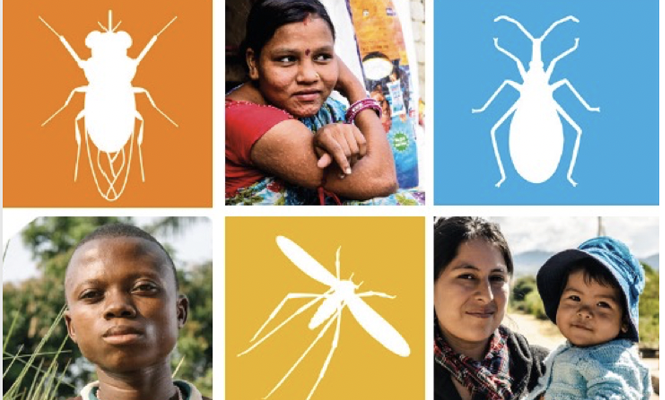Last October 7th, Chagas Coalition hosted the COR-NTD pre-meeting session on Integrating Testing and Treating of NTDs (like Chagas or Hepatitis C) into the health systems. This article is a briefing report of that session that will continue during the official COR-NTD in November 14th with an integrated session on Lessons Learnt among other NTDS (Human African Trypanosomiasis and Visceral Leishmaniosis). This year, COR-NTD is running virtual.
The Challenge: The session tackled this challenge: Integration of models to improve comprehensive care of neglected tropical diseases (NTDs) into protocols for other diseases that currently receive a high priority from public health programs has the potential to improve coverage significantly.
Presentations: Four speakers presented:
Dr. Pierre Buekens (University of Tulane, new member of Chagas Coalition) presented on “The potential impact of Integrating screening of Chagas disease in national protocols: The case of EMTCT-Plus”. He remarks that through the cascade of care, infected individuals are lost. The use and integration of rapid tests is fundamental in the context of prenatal care in order to avoid this, since most women attend prenatal checkups.
Dr. Sergio Sosa-Estani (DNDi) presented on “What have we learned from implementation of models of test & treat?” He emphasizes that Implementation research demonstrating diagnosis through two rapid tests in combination of safe and efficient treatment strategies are needed to contribute to Test & Treat model.
Dr. Favio Crudo (Mundo Sano) presented on Implementation of the framework for the elimination of mother-to-child transmission of HIV, syphilis, hepatitis B and Chagas (EMTCT Plus) in a disperse rural population from the Gran Chaco region. Preliminary results.
With the result of this program run by Mundo Sano, he demonstrated how implementation can be achieved and programs can be successful if the programs take into consideration the local context and limitations beforehand, assuring all needs are covered and access barriers are seen to.
Finally, Dr. Graciela Diap talked on Learning from Chagas disease: Hepatitis C Access. Both Chagas and Hepatitis C are silent diseases, with low treatment rates, which affect neglected populations. The barriers to access are similar for both diseases and they can be summarized intro systemic, structural, clinical and psychosocial. Therefore, it is possible to incorporate Hepatitis C into the EMTCT-Plus strategy.
The debate was moderated by Dr. Ezequiel Mauro (director of Hepatitis program of the Argentinian Ministry of Health)
Final Remarks:
The session rapporteur, María Victoria Periago (Conicet/ Mundo Sano) shared the final remarks of the debate:
1- Healthcare authorities need to be convinced of the benefits of integration in order to be able to construct programs that are no longer vertical, so that even the structures within the ministries are organized in a horizontal manner to promote working together to find solutions to similar problems that can take advantage of the same platforms. One way to do this is by showing that although it is complicated at first because vertical programs are easier to apply; there are advantages with respect to implementation, training and costs.
2- To develop a Test & Treat model with simplification of diagnosis through rapid tests and affordability of treatment is important for integration and to improve access.
3- The simplification of models of care, using an integrated approach of diseases at PHC, with appropriate level of training, allow task shifting strategies, for non-expert, well trained health staff (not necessarily MDs) to work efficiently at community level. Asymptomatic patients, in general are easy to treat. Specialist MDs can remain at the tertiary level and provide support to community/PHC health workers (telemedicine, etc.), assuming the complicated cases and complex co-morbidities. While requiring some policy changes, task shifting has demonstrated to impact on cost-effectiveness.
4- Knowing your baseline prevalence is important in order to be able to apply the programs where they are needed and tailor them to the local situation.
Presentations avalaible here:


